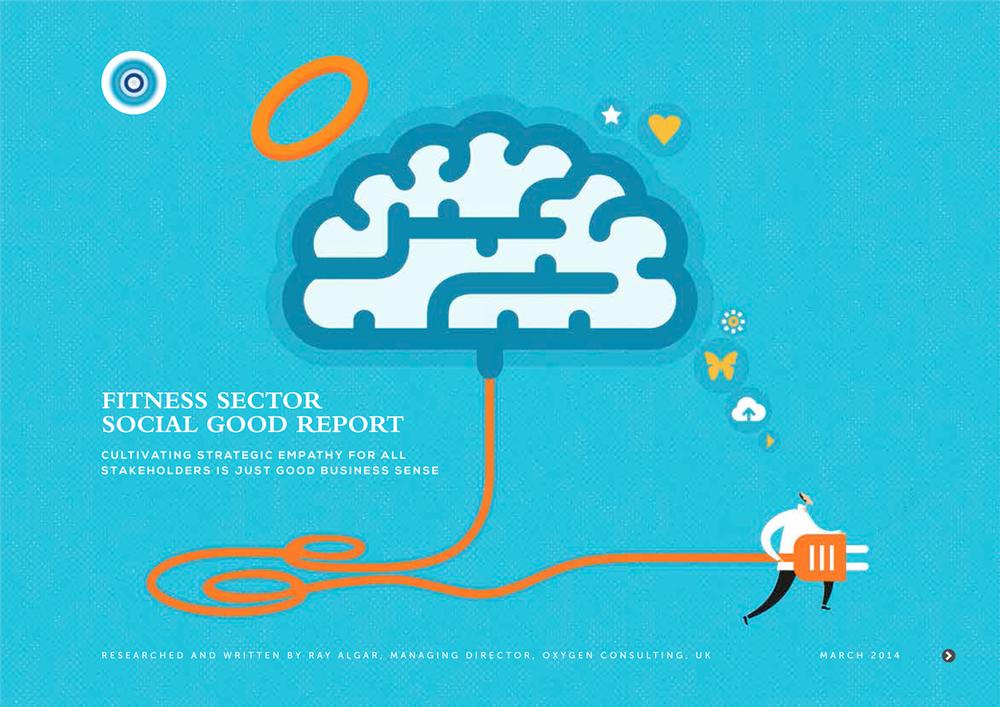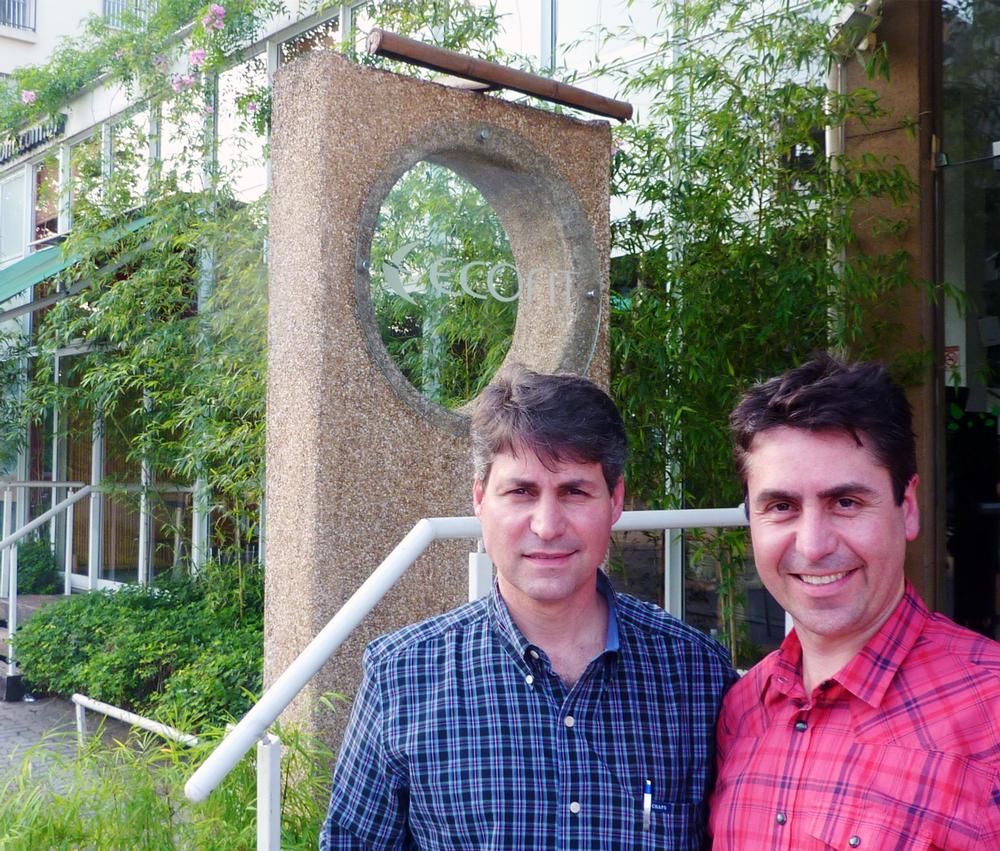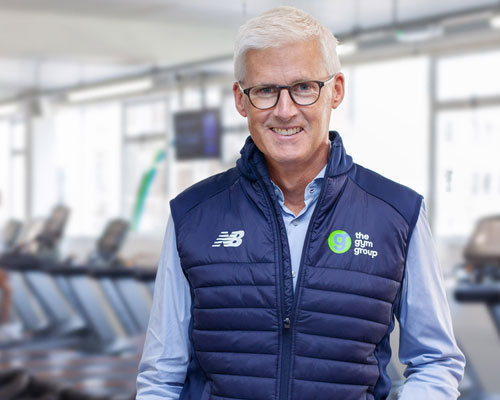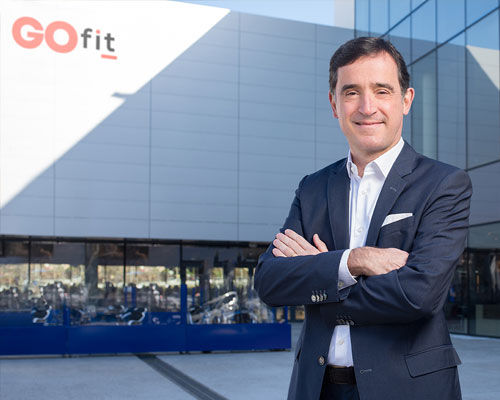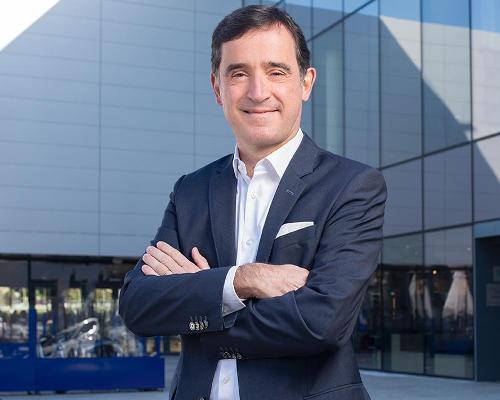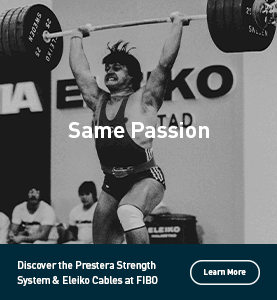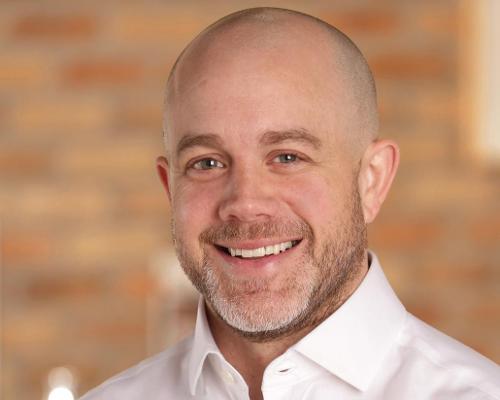features
CSR: Doing social good
Does your business look beyond profit to embrace a more socially conscious agenda? Ray Algar reports on the findings of his new Fitness Sector Social Good Report
The Fitness Sector Social Good Report explores the idea that a business with a purpose beyond maximising self-interests can ensure long-term relevance with stakeholders, creating a more valued and sustainable organisation.
This report is written with the private fitness sector in mind, because the pursuit of profit is very often a key measure of how they keep score. The public and third sectors, by contrast, measure themselves by the social impact they create in their communities, while conscious of ensuring financial sustainability. However, all organisations in the fitness sector, however they may be legally constituted, have a fundamental obligation to inspire people to live more active, healthier lives and to pursue this purpose in a responsible, authentic and compassionate way.
The report is structured around eight themes: purposeful, responsible, authentic, generous, compassionate, connected, collaborative and influential. We will take a look at each of these themes in turn, and what they mean for your business.
Purposeful
When I discover a new and interesting new business, there are normally two things I immediately want to understand. First, what the business makes – its product. Then I want to know the founder’s back story: why did they start the business and what’s the big idea that’s fuelling it? Understanding its purpose – the shared understanding of the reason why the business exists – is the filter I use to help me decide if I’m going to care about this business. Remember, if I care, I’m inclined to share the organisation’s story with my friends and contacts. I believe clarity of purpose matters, because it unites people and drives actions.
As Nikos Mourkogiannis, global expert in strategic leadership, says: “Purpose is a reason for doing something that appeals to a person’s sense of what is right and what is worthwhile. So it creates a sense of obligation. Business purpose is the most powerful but least leveraged weapon in leadership.”
There are four distinct types of business purpose. The first is Heroism – driving the standards for the world to follow (Facebook, Zipcar). The second is Excellence – providing the best possible product or service, with an insatiable pursuit of ever-higher standards (Apple, Lego). Then there’s Discovery – a love of the new and innovative, where the founders are often intellectually curious and have a desire to re-invent industries (Twitter, Samsung). Finally, there’s Altruism – serving the needs of other people (Disney, Kickstarter).
The fitness sector is driven by an altruistic purpose. However, some external industry observers see a contradiction. Giles Gibbons, CEO of Good Business, comments: “What’s interesting about the fitness industry is that it has an incredibly strong social purpose: to help others. One that’s well understood by the general public. It’s a fantastic place to start and actually quite rare. I think the challenge for the fitness industry is that it seems to forget about this and sees people as numbers, thinking of it as a cost-driven business. As a result, I don’t think it’s achieving the aspiration, the loyalty and the warmth it should have from such an important societal function.”
So consider this… What does your organisation fundamentally stand for? Is your organisation creating a legacy that will be long remembered?
Responsible
In 1970, Milton Friedman, the Nobel prize-winning economist, wrote a famous essay in the New York Times magazine entitled ‘The Social Responsibility of Business is to Increase its Profits’.
More than 44 years have since passed and the world of business is now very different, with the ‘responsibilities’ of business arguably far more complex to define (Figure 1). Now, a growing number of businesses routinely invest in social and environmental projects that may seem well outside the scope of their core business activity.
For example, over this past winter, Innocent Drinks encouraged people across the UK to knit little woollen hats to adorn the tops of their smoothie bottles. The company donated 25 pence to the charity Age UK each time a bottle with a hat was sold. The motivation was to try and reduce the number of old and frail people dying from the cold weather in England and Wales. So what’s the connection between a business that liquidises fruit and an elderly person who has never purchased a smoothie? It seems as though many businesses are fundamentally redefining their role in society, which is reshaping their perspective of who is a stakeholder.
So consider this… How much clarity is there in your organisation about core responsibilities? Would a neutral person conclude that your organisation’s terms of business are transparent, fair and reasonable?
Authentic
‘Authentic’ means to be real or genuine. In a business context, it translates to: ‘This is who we are and this is what we stand for. Please come and join us if this matters to you as well.’ When an individual and a business do genuinely connect, there’s a meeting of both heart and mind. Customers become enthusiastic advocates who just love talking about your organisational story.
I believe an authentic business has many different facets or characteristics (see Figure 2).
So what’s your organisation’s story? Do you have one, and would it captivate a room full of strangers? This matters, because a remarkable story has the potential to rapidly spread through a person’s network – and networks today are larger and more efficient than at any other time in the history of humanity. Organisations with a remarkable story will get more mentions on social networks, powered by an individual’s passion and excitement to inform others. This means they spend less on paid advertising trying to convince others to ‘like’ them.
So consider this… Does your organisation have a compelling story that spreads far beyond your geographic boundaries? How good is your organisation at proving the difference it makes to the lives of customers?
Generous
Organisations need to have a reputation for authentic generosity if they’re to remain relevant to their stakeholders. Throwing out a few scraps of charity once a quarter is neither credible nor sufficient: it smells of putting the interests of the business first, especially when the press release is rushed out, talking more about the act itself while lacking proof of results and the difference made.
So is your business a ‘net giver’ or ‘net taker’, because communities will care if your club is perceived as the former. What is a ‘net giver’? Put simply, it’s a club that, over the course of time, gives more to its community than it takes out. A business never wants to have a reputation for being a ‘net taker’, as it’s a label that’s very hard to shrug off.
As Thomas Kolster said in his book Goodvertising: “Generosity can be a clear differentiator in a crowded market. Generosity is a powerful story to tell about a brand and can attract new customers, new suppliers and partnerships.”
So consider this… How generous is your organisation when the press and media aren’t looking? How could a sustained sense of generosity be embedded into your organisation?
Compassionate
Having compassion means feeling concern for the misfortune of others. Together with the feeling, there’s often a strong desire to relieve it.
Compassion comes naturally to organisations whose purpose – the reason the business exists – focuses on serving others. For example, Tata Group – the Indian conglomerate employing 450,000 people in 85 countries – says it exists to “improve the quality of life of the communities we serve”. Jamsetji Tata, the founder of the company, once said: “The community is not just another stakeholder in the business, but in fact the very purpose for its existence.”
Good Business’ Gibbons discusses the idea of organisations showing compassion at the right moment. Unfortunately, the fitness sector has an inconsistent track record in this respect. There are too many cases of members feeling let down when diagnosed with life-threatening conditions, for example, only to discover their gym insists on them fulfilling the full terms of their contract or requesting termination fees. The Office of Fair Trading has been working with the fitness sector for years to improve and simplify cancellation rights, but should it really require the intervention of a regulator to arrive at the compassionate thing to do?
Consider this… What is the typical response from your organisation when a community in which you operate is in need? Do staff within your organisation have the authority to exercise acts of compassion which may require a financial trade-off?
Connected
Being connected is now a perplexing thing, given that more of us are now digitally tethered than ever before. Around the globe, 2.4 billion people are now connected to the internet – that’s one third of the world’s population. Facebook reached the magic number of one billion active monthly users as long ago as October 2012 and Zuckerberg, Facebook’s founder, has said he would like to connect the other six billion too.
So it’s now becoming much easier for organisations to connect with our devices, but getting into our heads and hearts is far more challenging.
When an individual and a business do genuinely connect, it’s an extraordinary thing. It literally is a meeting of minds. During 2013, I was in Brazil and took the opportunity to visit the remarkable Ecofit club in São Paulo. Opened in 2005 by Antônio and Eduardo Gandra, Ecofit is probably the world’s most environmentally friendly fitness club. The brothers have intelligently combined their passion for the environment and wellbeing into a unique business that members love being a part of. The business has partnerships with Greenpeace Brazil, WWF and 14 other health and environmental organisations. This amazing club feels more like an environmental academy that also happens to be a fitness club. Members love the club and what it stands for.
So consider this… Do you truly understand why customers have chosen to forge a connection with your organisation? Are customers deeply connected to your organisation, or are most only there until something more remarkable comes along?
Collaborative
Organisations that reach out, rather than build from within, feel more relevant to the role that customers and other stakeholders now wish to play. Co-creating is becoming the new normal, whereby customers and organisations collaboratively innovate over the long term. It’s about working with stakeholders to address future challenges and unlock opportunities, giving stakeholders a vested interest.
Take Kiva.org, a remarkable American non-profit organisation with a “mission to connect people through lending to alleviate poverty”. Kiva leverages the web and a worldwide network of microfinance institutions to allow individuals anywhere to lend as little as US$25. These micro-loans support people wishing to start or grow a small business in 73 countries. Kiva recently reached US$500m (£307m) in loans made by its community of one million micro-lenders. Collaborative projects like Kiva are very exciting on so many levels: they allow anyone, anywhere with access to the web, to participate in solving social inequalities.
So consider this… Does your organisation possess a ‘we know best’ mindset, or does it collaborate with its customers? How many different ways does your organisation encourage a continuous conversation and feedback with stakeholders around service innovation?
Influential
The marketing team of one of the UK’s leading health club businesses is very excited as they recently reached 100,000 ‘likes’ on Facebook. It’s been a long journey of ‘nudging’ – ‘like’ our page and receive a free one-day gym pass – but in March the milestone was reached. So it’s official: according to Facebook, they’re one of the most popular gym brands in the country.
Of course, it feels good to be ‘popular’, but it’s influence that really matters. Popularity can be bought or faked, whereas influence is earned and authentic. Popular businesses do not necessarily have the authority to move people; influential ones do. Influence is the capacity to affect the way that people think and behave, and this only occurs if they believe in your organisation, loving what the organisation stands for and the way it’s championing a better future for others.
As fitness businesses grow in size, some begin to potentially accumulate greater levels of influence, which may not at first be apparent. Virgin Active, for example, now has more than 1.2 million global members in seven countries, while Planet Fitness, the American low-cost gym brand, has more than five million, equivalent to the population of Norway. Add to this employees, suppliers and other stakeholders, and you have businesses with the potential to create dramatic social impact – provided they’re motivated to harness it. This means more than improving the lives of members: it means the mobilisation of all stakeholders to enrich the lives of other, less fortunate people.
So consider this… Does your organisation pursue popularity or influence? Does your organisation possess sufficient influence to affect the way that people think and behave?
Pieces of the same puzzle
My report has focused on eight themes because they all seem so inter-connected. How can an organisation be socially responsible if its purpose is unclear? How can it be influential if it’s not authentic and connected?
What the recent global economic crisis has shown us is that the pursuit of a narrow and self-serving agenda is unsustainable and simply unfair. It may work for an organisation in the short term, but at some point Twitter will realise there’s an injustice taking place and its 241 million active users will get to work to right the wrong.
Figure 1: Multiple responsibilities of a modern business
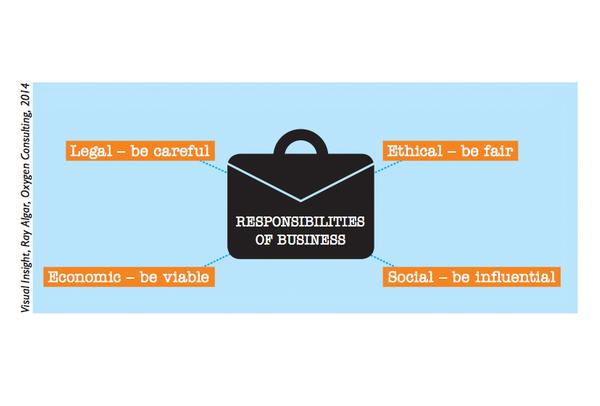
Figure 2: Characteristics of an authentic business
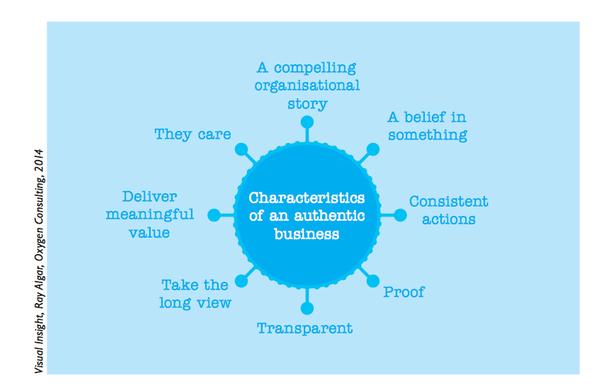
Ray Algar is managing director of Oxygen Consulting, a company that provides strategic business insights for organisations connected to the global health and fitness industry. He recently founded Gymtopia, a digital platform that shares stories about how the fitness industry is creating positive social impact in communities around the world – see p50.
Download a complimentary copy of the Fitness Sector Social Good Report:
http://bit.ly/SocialGoodReport
